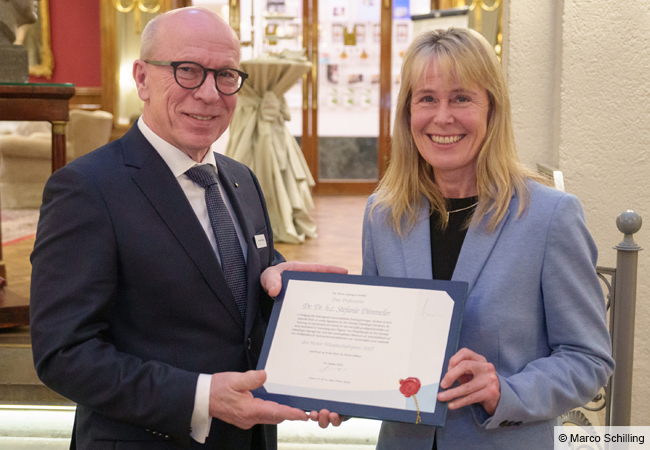
Körber Foundation’s German Thesis Award for comparison of poverty trends in Germany and the United Kingdom.
In Germany, the risk of poverty has increased since the 1990s while in Great Britain it has decreased. Frankfurt sociologist Jan Brülle has explored the potential reasons for this in his thesis – the results are revealing.
What is poverty in the first place? Poverty researchers speak of “relative income poverty”: People who have at their disposal less than 60 percent of the average income in a country are threatened by poverty. They are more often unable to afford regular hot meals and their children might not be able to go to all their friends’ birthday parties because there is no money for presents: Poverty is a heavy burden on the individual and his or her situation in life. But how poverty develops in a society says a great deal about its structure and the transformation taking place in that society. A state that wants to allow all its citizens a minimum of economic, social and cultural participation must keep a close eye on this development.
Why has the risk of poverty risen continuously in Germany since 1992 and how is poverty structured? These questions formed the starting point for Jan Brülle’s thesis. A hypothesis viewed by many as obvious: It is due to the dismantling of the welfare state above all through the Hartz reforms. “My research showed, however, that especially the labour market and changes in family structures play a role. Changes in the welfare state only come third,” explains Brülle.
For his study, Brülle, now 33, analysed datasets released for scientific research by the German Institute for Economic Research (DIW) in Berlin – what is known as the Socio-Economic Panel (SOEP). This enabled him to include the data of about 12,000 German households in his research. For the part of his study on Great Britain he used the British Household Panel (BHPS) as a basis. The two datasets made it possible to track the situation in British and German households over several years.
Do the same people stay poor from year to year or are they able to free themselves from poverty? How does poverty develop in relation to different educational backgrounds and professions? Brülle examined these questions against the backdrop of both the data from Germany and those from the British panel. The outcome was that in Germany poverty became more widespread, lasted longer and became more unequal over the period examined. The lower the level of education, the greater the risk of poverty has increased. In addition, workers are more at risk of poverty than employees in higher positions. In Brülle’s opinion, knowing the causes for these developments is preconditional for implementing the right political measures to combat poverty.
In Great Britain, where more people were affected by poverty than in Germany, the opposite development could be seen: The targeted use of social transfers was also able to mitigate even high inequalities in income. Low-income earners in Germany also receive a little help from the state to make up the difference. However, with its Working Tax Credits, which according to Jan Brülle really improve people’s situation, Great Britain is more generous in topping up low earnings. Especially households with children receive additional allowances. In Germany, on the other hand, it is clear to see that the already precarious situation for some people is becoming entrenched, while social security safeguards higher incomes even in the case of unemployment better than in Great Britain.
According to Jan Brülle’s findings, the cause for the growing risk of poverty lies above all in the polarization of the employment market: More and more people are no longer able to live off their earned income. In addition, there are more and more single households, meaning that less and less people on a low income can rely on the resources of other household members. And the reforms in the welfare state (i.e. Hartz IV) have not helped to mitigate this situation. The example of Great Britain shows, however, that the state certainly has means at its disposal to change things for the better.
Jan Brülle compiled a detailed summary of his work for the Körber Foundation’s German Thesis Award. His paper was awarded the second prize worth € 5,000 and can be found online on the Foundation’s website from 27 August 2018 onwards. The prize is awarded every year for the nine most pertinent theses.
Publication here »







